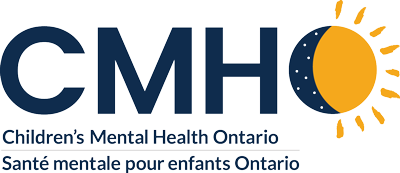Join youth along with the founder of The New Mentality’s Rainbow Connections program in conversation about what it means to design and host identity-based programs that are by and for youth. Together, we’ll learn about the importance of action-oriented peer support and explore how youth leadership storytelling can be a catalyst for change. Gather some tips and tricks about holding meaningful, intergenerational programs that help create thriving communities of care.
Rainbow Connections is a 12-week 2SLGBTQIA+ youth mental health leadership program founded by Raine Sparling in 2021 and is entering its third year. It’s a space where youth can connect through storytelling and conversations around their experiences. From there, the participants designed and led a workshop to help adults in the mental health sector better understand how to advocate for and support 2SLGBTQIA+ youth.
Presenters:
Raine Sparling (They/Them) is the founder and coordinator of Rainbow Connections, a 2SLGBTQIA+ youth mental health leadership program. Having worked and volunteered in facilitation for eight years, they have a passion for genuine youth engagement and using storytelling as a way to create connection and change. As someone with a background in community development and engagement at the grassroots and organizational levels, Raine centres community, justice, and connection in all that they do. Throughout their career, Raine has worked in food justice, youth programming, mental health, sustainability, and currently does facilitation, accessibility, and 2SLGBTQIA+ inclusion work with organizations. They are a firm believer that the first step in creating change is by daring to do our work differently and actively creating the communities we dream of being part of.
Wren Kauenhofen (they/them) has been involved in youth mental health advocacy for five years and 2SLGBTQIA+ advocacy for three years. Through their work with The New Mentality, Wren has been a strong voice in the conversations around mental health, queerness, and disability. Through joining the Rainbow Connections program in its first year as a participant, returning for the second year as a youth apprentice, and then joining the “extra credit crew” for additional projects, they have had a journey of growth, learning, joy, and connection with this program, even becoming an amateur queer historian along the way. Wren is currently studying health sciences at Western University, where they are also conducting an undergraduate research project on gender-based violence prevention. They aspire to empower 2SLGBTQIA+ people through research that explores the storytelling, connection, support, and joy in this community.
Murphy-Issac Boyse (they/he) began their queer advocacy journey shortly before their public “coming out” in 2016, and now at almost 25 year old, has a wide variety of lived experience having shown up as a keen observer, cautious participant, and fiercely loyal host to many different queer events. From organizing Trans Day of Remembrance (TDOR) vigils, to week long Pride celebrations, or simply hosting space weekly for queer youth to gather safely free of judgement, Murphy-Issac feels most fulfilled when they are surrounded by their queer community.
Crystal Ward

